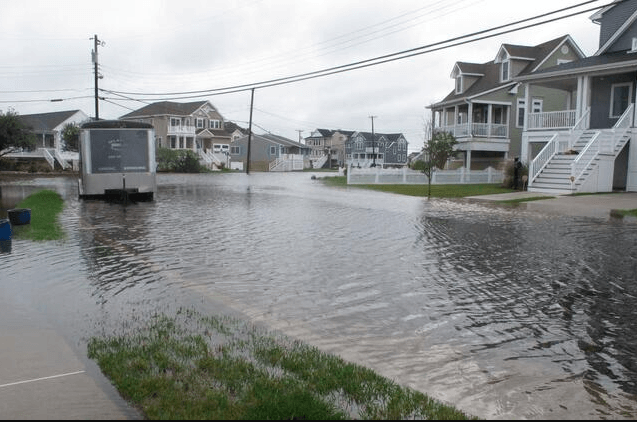Monmouth’s Climate Crisis Teach-In 2023 kicked off its first event of the semester with “The Sea at our Doorstep – How Rising Sea Level Will Change our Coastal Communities in the Next 30 years and Beyond” on Monday, Jan. 30.
As per the University’s website, the overarching goal of the teach-in “is to generate discussion about climate impacts and solutions with the goal of improving life for humans and other living things.”
This event was a joint presentation between Matthew Pacicco, Adjunct for the Department of Chemistry and Physics, and Thomas Herrington, Ph.D., Associate Director of the Urban Coast Institute, followed by a question-and-answer discussion with Gina McKeever, DBA, Lecturer and Interim Director for the Kislak Real Estate Institute.
Paccico, Herrington, and McKeever’s presentation reviewed the reasons for sea level elevation changes, how it will affect coastal communities over the next few decades, and what consequences will follow through the end of the century.
Catherine Duckett, Ph.D., Associate Dean for the School of Science, underscored the importance of this discussion as sea levels rising is highly indisputable.
She began, “It’s one of the few parts of climate change of which we have almost absolute certainty about. We know that the sea level will rise a certain amount. We don’t know exactly how soon, but we know given the laws of physics and what we know about climates of the past from isotopic data that sea level is going to rise.”
Harrington followed, “We should expect that when we have heavy rainfall events in our low-lying coastal areas at high tide, then we’ll see more flooding, and then we should see more severe coastal storm surge impacts moving forward into the future.”
As a result of these predictions, McKeever prompted, “In the next 30 to 50 to 100 years, are we going to be able to use the real estate that’s along our own communities?”
“Potential obsolescence of real estate is in the order of 34 billion dollars with respect to coastal flooding, as it relates to sea level rise,” continued McKeever.
The danger of property damage then highlights the issue of insurance. McKeever added, “In the long run, insurance is going to be a very big issue to the point where those who can afford private insurance potentially could be some of the only people that live on the coastal communities, because that’s what it’s going to come down do: insuring your property.”
“It’s going to be an insurance problem. . . Many people who can’t afford good insurance or to rebuild their home will be impoverished. It will change the face of the earth, both physically and socially,” concurred Duckett.
Pacicco, who also works as an engineer, explained his position on promoting climate literacy through events such as these.
He said, “Promoting climate literacy is the most important way to combat the climate crisis. There is so much information, and it’s hard to understand – hard to know what to care about.”
The presentation garnered a 60 in-person audience and 20 additional individuals virtually.




